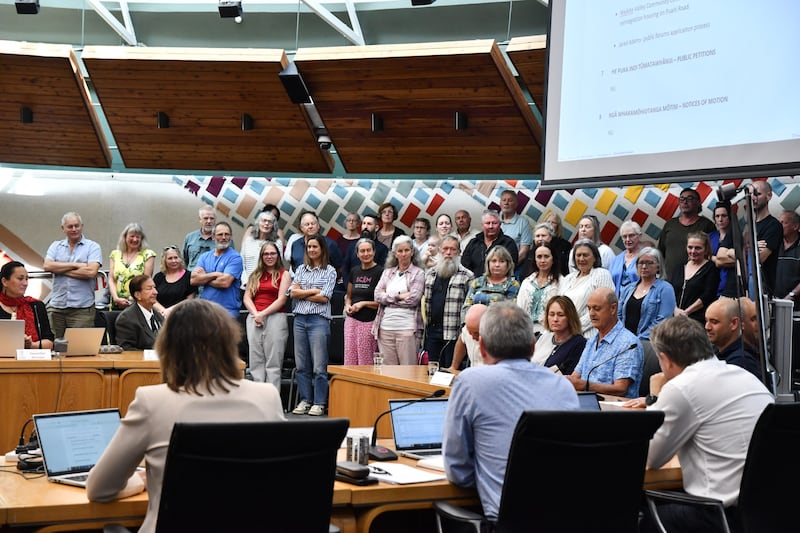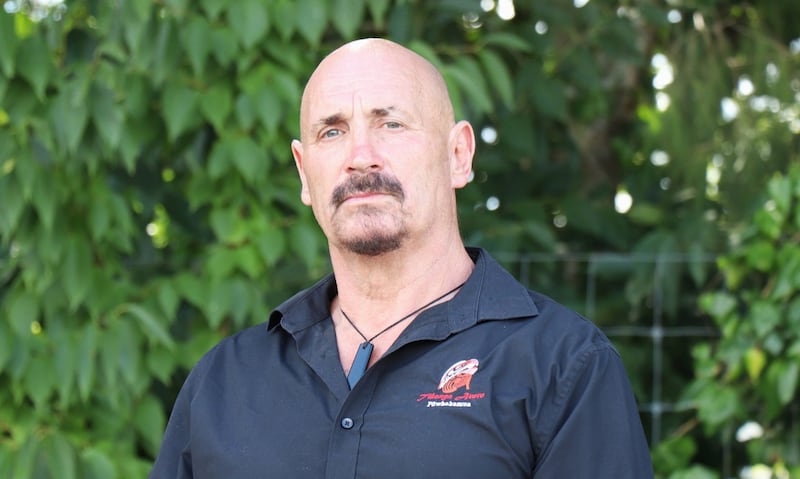The public will have a say on a controversial plan to move a prisoner reintegration facility to a rural Rotorua valley.
Rotorua Lakes Council has decided to publicly notify a resource consent application for Pūwhakamua to operate in Waikite.
It comes as the council investigates the existing Pūwhakamua facility, based near Rotorua Airport, after issuing, then cancelling, a notice ordering it to cease operations because of consent matters.
Pūwhakamua is a tikanga Māori live-in reintegration service supporting men on parole to return and readapt into the community.
It was the brainchild of reformed drug lord Billy Macfarlane, who works as general manager, and is run by Tikanga Aroro Charitable Trust, with a contract from the Department of Corrections.
Pūwhakamua has been operating on the leased site since 2018 and Corrections has funded it at least $4.6 million since November 2022.
The trust aimed to develop a new site on nearby Māori land behind Rotokawa Baths, but landowners successfully sought an injunction through the Māori Land Court, meaning it had to find another new home.
The trust applied for resource consent in October to relocate to Waikite, about 40km south of Rotorua.

It had requested limited notification be carried out for immediate neighbours and that submissions be invited through a formal process.
Community members told councillors last year they opposed the facility relocation, fearing the rural setting increased safety and security risks. They called for full public notification, allowing wider submissions.
The Rotorua Rural Community Board was advised in a meeting on Tuesday the application would be publicly notified.
The trust’s application said the rural environment meant a “focus on cultural values can be fostered away from the distractions of an urban environment”.
“Full support and care are provided through the programme via on-site resident staff and external agencies. Residents commit to pursuing lasting change through support with daily life tasks, upskilling programmes, vocational education, personal development and employment.”
The trust hit consent issues at its current site this year.
On March 5, the council sent an abatement notice ordering the “unconsented” facility to cease operations and take steps to gain consent.
Rehabilitation centres could be considered community housing under the District Plan, but must only have up to eight residents, whose movements could not be legally restricted – including by parole conditions.
Pūwhakamua was hosting 14 parolees in February when the council inspected after neighbours raised concerns.
The abatement notice was cancelled on March 24.
Council destination development group manager Jean-Paul Gaston told Local Democracy Reporting an investigation into activities on the site was ongoing.
He declined to comment further, saying the council did not intend to conduct the investigation through the media.
Trust chairman Doug Macredie said the abatement notice was a “non-event based on incorrect information” and was quickly cancelled.

“That said, we’ve taken the opportunity to review our land use in accordance with tikanga, and will continue in humility and thankfulness.”
Macredie said the Waikite Valley consent notification was for the council to decide.
“We are progressing with the full support of our network and observing improved accuracy of information resulting in greater public support.”
He previously said no one who could not be safely managed in the community could live at Pūwhakamua and everyone referred was assessed while still in custody.
Active gang members were not considered, community safety was the “No 1 priority” and Pūwhakamua staff were on-site at all times.
A Corrections spokesperson said finding safe accommodation for people lawfully required to be released from prison was one of its “most significant challenges”.
“Without supported accommodation, they could be homeless and living on the streets or in cars. This would present an unacceptable safety risk to communities.”
According to Corrections statements, the number of men living on site at Pūwhakamua had fluctuated from eight when the notice was cancelled to nine about two weeks ago and six as of Wednesday.
Eight other participants in the programme lived off-site.
Corrections’ communities, partnerships and pathways deputy chief executive Sean Mason told Local Democracy Reporting last month that it met with trust and council after the abatement notice.
He understood the trust sought independent advice to ensure Pūwhakamua was compliant and was keeping Corrections informed.
The department had developed a contingency plan in place to safely house the residents if they had needed to leave Pūwhakamua.
Mason said reintegration services were important in reducing the risk of reoffending.
A communication from the council to the trust, sent to Local Democracy Reporting by Corrections, said the abatement notice was cancelled to allow time for an independent planning consultant to consider an assessment undertaken on behalf of the trust.
– LDR is local body journalism co-funded by RNZ and NZ On Air.


